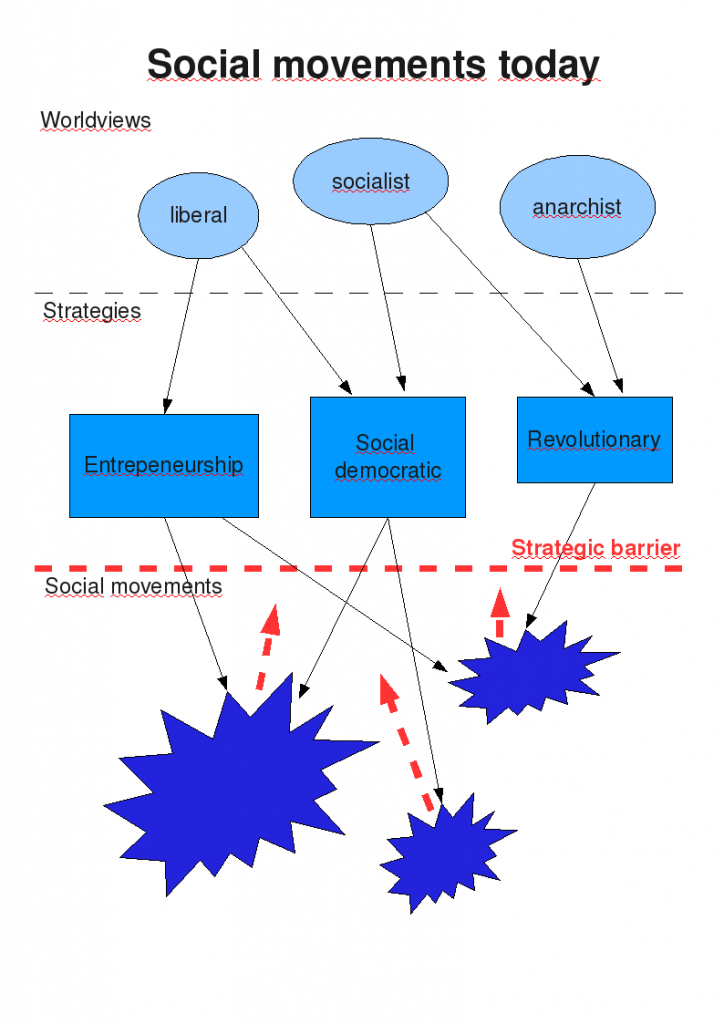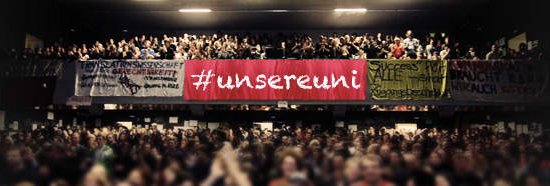This is a translation of a german article. Hier gibt es den Artikel in deutsch.
The power of social movements lies in their heterogeneity. Because of it, they achieve longer lasting and more fundamental change than other societal actors. But it makes them confusing, too. In addition to fighting for change, they are subject to fights themselves. From parties over NGOs to trade unions and churches, they all fight to play a role in social movements.
 We can somewhat order this chaos by looking at the relation between worldviews, strategies and tactics of the players involved. Most often strategies are employed which match the respective worldview. For example, the social democratic strategy of seizing state power and softening the impertinences of capitalism is expression of a socialistic worldview; the strategy of demanding value based decisions is based on a conservative worldview, etc. Here, the respective notion of societal change becomes visible as well. Experience shows that communication between actors that have different worldviews is almost impossible. Across strategic borders understanding is difficult. This is one of the reasons why communication within social movements often is so exhausting.
We can somewhat order this chaos by looking at the relation between worldviews, strategies and tactics of the players involved. Most often strategies are employed which match the respective worldview. For example, the social democratic strategy of seizing state power and softening the impertinences of capitalism is expression of a socialistic worldview; the strategy of demanding value based decisions is based on a conservative worldview, etc. Here, the respective notion of societal change becomes visible as well. Experience shows that communication between actors that have different worldviews is almost impossible. Across strategic borders understanding is difficult. This is one of the reasons why communication within social movements often is so exhausting.



 Im Rahmen des
Im Rahmen des 
